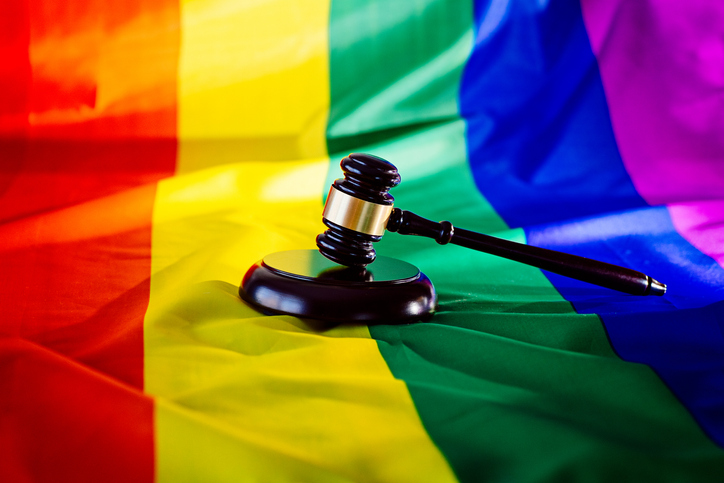The National Association of Social Workers (NASW) has joined other civil rights, anti-poverty and child and family welfare organizations on an amicus brief involving U.S. Supreme Court cases that could determine whether federal anti-discrimination laws protect workers who are LGBT. The court began hearing arguments on October 8.
The cases before the U.S. Supreme court are Gerald Lynn Bostock v. Clayton County, Georgia; Altitude Express Inc. and Ray Maynard v. Melissa Zara and William Moore Jr., co-independent executors of the estate of Donald Zarda, et. al; and R.G. & G&R Harris Funeral Homes, Inc. v. Equal Employment Opportunity Commission and Aimee Stephens.
The brief supports the LGBT parties in these cases. Social worker Gerald Lynn Bostock was fired by Clayton County, Ga. when he revealed he is gay. Donald Zarda, who died in 2014, was fired from his job as a skydiving instructor after joking with a female client that he was gay. And Aimee Stephens was fired from a funeral home job she had held for years after revealing she was transgender and transitioning from male to female.
In the brief NASW, the Southern Poverty Law Center, Children’s Defense Fund, Economic Policy Institute and other organizations said people who are LGBT face “alarming rates” of discrimination on the job. Almost half of LGBT workers have experienced discrimination because of their sexual or transgender status, according to the U.S. Commission on Civil Rights. This discrimination is even worse for women or people of color who are LGBT, the brief said.
This discrimination has far-reaching, compounded effects, the brief said. LGBT workers who do not have federal Title VII protection face long-term unemployment. “Unemployment, in turn, leads to lower incomes, less access to health care, and poorer health, as well as harms to society and to children,” the brief said.
This discrimination also hurts our society because unemployed people who are LGBT put burdens on the national economy as they seek assistance for housing, food, health care and other services, the brief said. Many people who are LGBT are in families with children, and these children suffer when their parents or guardians cannot find gainful employment.
Even LGBT workers who are closeted at work or at risk, the brief said. Studies indicate being closeted in the office can lead to poorer job performance, lack of promotion, lower pay and increased anxiety, depression and burnout.
“LGBT people may also forego marriage and romantic relationships to avoid ‘outing’ themselves at work,” the brief said. “Particularly in small, close-knit communities, it is often impossible for LGBT people to be out with friends and family but closeted at work.”
NASW supports equal treatment for all. To learn more about our position on LGBT and transgender issues visit our LGBT webpage.




